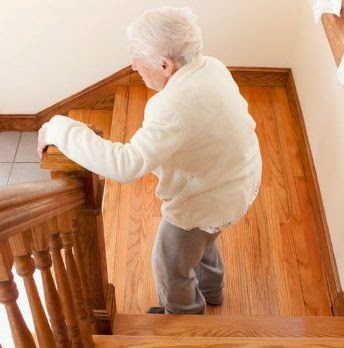I recently participated in a Blog Carnival on my nursing blog about End-Of-Life Decisions. It's a wonderful conglomeration of experiences from a variety of nurses and from many different points of view. You might be well served to check these out as it's obvious even nurses struggle with discussing death and dying. My blog post talks to the point that these decisions empower us.
As nurses, we've seen it from many points of view as the loved ones, the friends, and from the healthcare professional vantage point. We've seen our own families and friends struggle to make heart wrenching decisions when their loved ones did not tell them their wishes, and had to support others deal with the decisions their loved ones did make that don't always make sense in the moment.
As nurses we've also seen families fight amongst themselves over which way to proceed once it becomes clear the person isn't going to recover from the event or illness. One thing comes through loud and clear is that when the patient has not made decisions and has not discussed wishes even on a very hypothetical basis, it's even harder to have to make decisions for them. And when no one person or persons is made the DPOAHC (durable power of attorney for health care), families can completely destruct over who's making the decision and why? All this at a time when they need the love and support of each other.
Caution: Graphic Explanation Follows
A common conversation among nurses is often, "where shall I tattoo NO CPR? On my forehead or my chest?" Let's get some facts straight. Resuscitation is painful both physically and emotionally!! And the pain can last for a very long time and hinder any possible recovery. Ribs can easily be broken and organs punctured which complicate the process. Even without that possibility, it's painful to have a 200+ pound paramedic pouncing on your chest for any length of time! Using paddles to shock the body sends a painful electrical shock wave through your whole body.
And there are risks depending on how long the patient has been "down" prior to the CPR as well as the effectiveness of the CPR to circulate blood and oxygen to the brain and vital organs. What will the outcome be if the patient is brought back? Will there be tubes needed? A ventilator to support breathing? What extent of brain damage has been done? Has the heart suffered major damage? How will all of this affect the quality of life? Will there be anger or regrets?
What if I Want Everything Done?
YES, you and your loved ones have every right to demand that everything possible be done under any circumstances. And those decisions have to be honored as much as any other end-of-life decision. They can be faith based, fear based, ignorance based as well as based on your own desire to live forever. But they need to be made known to your loved ones and healthcare team as much as any other take on the subject to ensure they are followed.
On the other hand, if you do NOT wish to have heroic measures taken, you have the right to have those wishes followed as well. Advance Directives can be made as specific and complex as you desire. Or they can be vague and give your proxy to your an agent of your choosing to make the best decision based on the situation at hand.
These decisions need to be made and discussed with your loved ones LONG BEFORE there is a need to implement them. This is not just for those who are old or are in poor health. If you got hit by a bus crossing the street and complications set in, what path do you want your health care team to take? And is your family prepared to comply with your wishes? Have that discussion with your loved ones Today. Make informed choices. There are NO right or wrong answers, but the questions and options need to be discussed.
Further Reading:
Today's the Day to Talk About How You Want to Die
Advanced Care Planning Resources
End of Life: Helping with Comfort and Care










